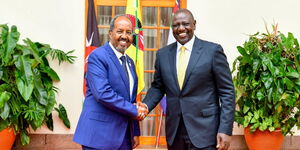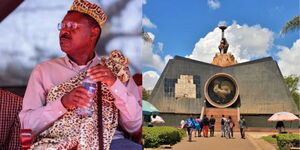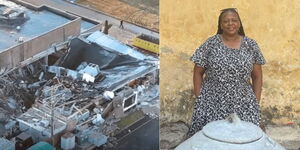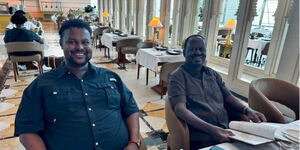Daniel Zuma was raised in a family of five and grew up when hunting was normal in his community in Kasigau village located in Taita Taveta county, but his story would come to earn him recognition from Bill Gates.
His father relied on cutting down trees to burn charcoal and poaching wild animals as the main source of income.
He would do this to feed his family and to cater to their needs such as fee payment.
His community was sandwiched between Tsavo East and Tsavo West National Parks and was always at odds with wildlife that moved between the parks.
However, Zuma had a different dream growing up as he always wanted to be either an engineer or a pilot.
"I always wanted to be a pilot since I was young, but when I learned about conservation I fell in love with it and decided to become a conservation pilot," he revealed.
His dream would get a boost after a community-centered wildlife conservation firm and the local community established a wildlife sanctuary that helps members of the community find alternative sources of income.
The community-centered wildlife conservation firm employed Zuma in its workshop as an Assistant Mechanic in 2010.
It was through his job fixing cars that Zuma's passion for flying grew stronger when a new gyrocopter was bought for the project and he saw a clear opportunity towards achieving his childhood dream.
The company sponsored Zuma's trip to the United Kingdom(UK) where he received training to become a gyrocopter pilot.
After completing his education, Zuma was employed by Wildlife Works in the workshop as an Assistant Mechanic in 2010.
It is his work with the conservation company and his journey to the top that earned him recognition from the American billionaire philanthropist who featured him on his personal blog Gates Notes.
In the blog post published in September 2018, Bill Gates recounts the 28-year-old's story from a poacher's son to a wildlife conservationist protecting Africa's biodiversity.
Through his training as a gyrocopter conservation pilot and technician, he came back to his community and now flies over dryland forests as part of the Wildlife Works Elephant Protection Trust Air Wing to protect the trees and wildlife living in southeastern Kenya.
“Looking back, my dream has come true thanks to Wildlife Works. I now want to positively impact the community and my generation for the better,” he opined.
“Thanks to Wildlife Works, the environment is being protected from overgrazing, charcoal burning, and poaching, and the wildlife populations are intact,” he added.
Zuma has got his community involved in eco-tourism projects which have seen them launch a workshop to make handicrafts to sell to visitors.
He uses his gyrocopter to patrol the wildlife sanctuary doing wildlife counts and keeping an eye out for poachers who encroach on the park.
It is through these acts that he has endeared himself to the community with many youngsters looking up to him for protecting wildlife not only for their sake but also for generations to come.












